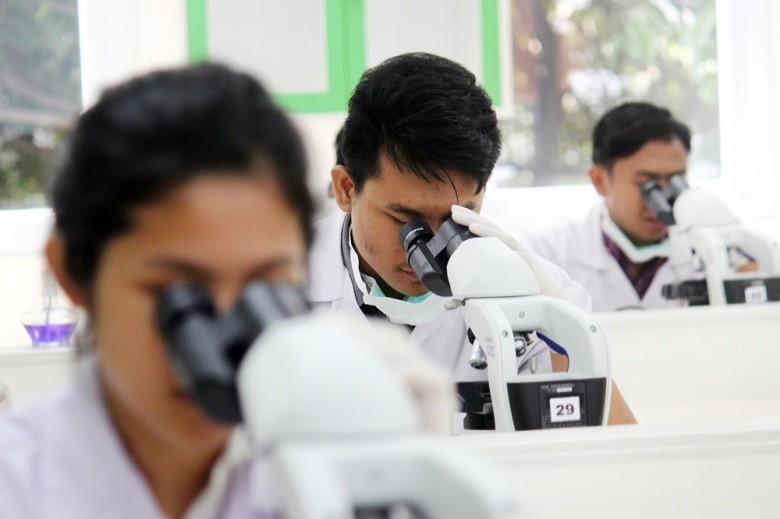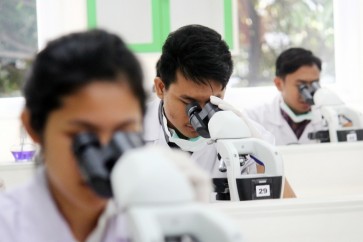Popular Reads
Top Results
Can't find what you're looking for?
View all search resultsPopular Reads
Top Results
Can't find what you're looking for?
View all search resultsToward research-oriented universities
The jargon term “world-class university” seems to be overused by rectors and university management, while university rankings focus mainly on research-related accomplishments.
Change text size
Gift Premium Articles
to Anyone
T
he jargon term “world-class university” seems to be overused by rectors and university management, while university rankings focus mainly on research-related accomplishments. For example, the QS University Ranking considers international reputation and citation per faculty as two major components, 40 percent and 20 percent respectively.
Similarly, in the Times Higher Education rankings, faculty citations and research (volume, income, reputation and productivity) make up 60 percent of the ranking metric. This indicates that the term “world-class university” should be backed up by significant efforts to reform research in Indonesian universities.
What we have now are mostly teaching universities. Assistant and associate professors in the top universities are still heavily burdened with teaching loads, leaving them little time to do research.
Furthermore, international collaboration to develop global research universities is still nascent in the country. Local and foreign actors have made some strong early moves in this respect. For example, the Research, Technology and Higher Education Ministry has begun the World Class Professor Program to attract academics from the Indonesian diaspora to collaborate with local universities to help boost research output.
Through this program, Bagus Muljadi, an assistant professor at the University of Nottingham helped broker a deal between his university and the ministry to establish an Indonesian doctoral training program (IDTP).
More recently, through the Newton Fund, the ministry and Britain’s Department of Business, Energy and Industrial Strategy endowed Rp 35 billion (about US$2.5 million) to fund research projects on infectious diseases through six partnerships between Indonesian and British universities.
This example shows that research fund spending is one key to create mutual partnerships between top global universities and Indonesian universities to solve problems and innovate in industry.


















